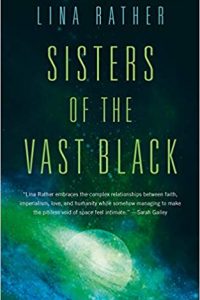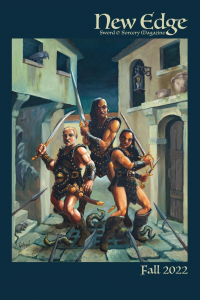Ian Mond Reviews Bewilderment by Richard Powers
 Bewilderment, Richard Powers (Norton 978-0-393-88114-1, $27.95, 288pp, hc) September 2021.
Bewilderment, Richard Powers (Norton 978-0-393-88114-1, $27.95, 288pp, hc) September 2021.
I first became aware of Richard Powers’s work when his novel, Generosity: An Enhancement, was nominated for a Clarke Award back in 2011. However, it wasn’t until the publication of The Overstory in 2019 that I read a book by Powers. If Goodreads is any indication, I’m not alone. Having written 11 novels over more than three decades and having been recognised by numerous prizes, including the Booker and the National Book Award, The Overstory proved to be Powers’s breakout novel. It’s not entirely surprising. The Pulitzer Prize winner is a remarkable, passionate piece of environmental activism that beautifully captures the majestic, mythical quality of trees and the complex, organic networks they use to communicate while also viscerally describing the devastation wrought on woodlands and forests by progress and consumerism. In comparison, Powers’s latest book, Bewilderment, is a shorter, more intimate novel, the expansive reach and multiple viewpoints of The Overstory replaced by a single narrator and smaller cast: a father and son. The subject matter, though, is the same. Like its predecessor, Bewilderment articulates Powers’s deep despair for the environment, this time shifting the focus from the flora that sustains life to the fauna facing mass extinction.
Bewilderment is narrated by Theo Byrne, an astrobiologist who models planetary atmospheres to determine the possibility of life on other worlds. Since the tragic death of his wife Alyssa two years prior, Theo has struggled to juggle his work and care for his neuroatypical son Robin who is prone to emotional and sometimes violent outbursts. When we first encounter Theo and Robin, they are spending an impromptu week in the Smokies after Robin badly injures one of his classmates. We learn, however, that Robin is an empathic, curious, and passionate nine-year-old who, like his father, is drawn to the stars, fascinated by the possibility of a universe teeming with life. But after watching a video of his activist mother advocating for the outlaw of killing contests (the senseless slaughter of wildlife for cash prizes and hunting equipment), Robin’s interests shift to saving endangered species. This singular passion, which sees Robin paint these incredible pictures of animals facing extinction, intensifies rather than quells his emotional outbursts. After Robin unsuccessfully attempts to claw his father’s face off, Theo – who refuses to medicate his son – turns to an old friend of his wife for help, a high-profile scientist experimenting in neurofeedback. Martin Spurrier believes that his Decoded Neurofeedback machine can assist Robin’s emotional states by training the young man on his mother’s recorded brain patterns.
Bewilderment is indebted to Powers’s childhood love of Daniel Keyes’s Flowers for Algernon. In his Author’s Note, Powers speaks about the profound influence the novel had on him at a young age. ‘‘The story lit up my imagination and settled into that permanent place children reserve for those fables that capture the mystery of life.’’ Powers, though, makes several changes to his reinvention of the science fiction classic, not least of which are the age gap between Charlie Gordon and Robin and the rather clever shift from an invasive experimental treatment to a non-invasive experimental therapy. The key difference, however, is that unlike Charlie, who has an untreated metabolic disorder that has led to his reduced intelligence, Powers (and Theo) go to great lengths not to diagnose Robin. The term autism only appears twice: once connected to the drugs that manage autism and once in reference to Inga Alder, Powers thinly veiled stand-in for Greta Thunberg (whom Robin takes a shine to). In refusing to label Robin, Powers argues that we are too quick to categorise and medicate our children rather than listen to the anxieties they express. It’s a view I can sympathise with, given how quickly those in power use developmental disorders like autism to dismiss Thunberg and the children who rally around her.
Bewilderment does have one shortcoming: it’s a textbook example of the dead or missing mum trope. Like ‘‘fridging,’’ the trope uses the mother’s death or disappearance to direct our sympathy to the male character. That’s what Powers does here. Alyssa is first treated as a saint by Theo, where even her flaws are given the Vaseline-on-camera treatment. When he discovers Alyssa may have had an affair, it becomes less about Alyssa and all about Theo’s emotional response to this revelation.
As frustrating as this flaw is, I still came away from Bewilderment in awe of Powers’s skill as a storyteller. It’s in the moments of sheer delight as Theo describes to Robin the inhabitants of the planets he surveys, drawing on the golden-age science fiction he loved as a kid, or how in the background Theo and Robin’s world ever so gradually slips into a dystopia, complete with a terrifying counterfactual of the November elections, or Powers’s ability to evoke despair and anger in the reader as we, alongside Robin, begin to appreciate how many species humanity has wilfully eradicated. Above all, it’s in Powers’s moving, devastating portrayal of a father and son, one filled with so much sadness and tragedy, but also so much love.
This review and more like it in the September 2021 issue of Locus.
 While you are here, please take a moment to support Locus with a one-time or recurring donation. We rely on reader donations to keep the magazine and site going, and would like to keep the site paywall free, but WE NEED YOUR FINANCIAL SUPPORT to continue quality coverage of the science fiction and fantasy field.
While you are here, please take a moment to support Locus with a one-time or recurring donation. We rely on reader donations to keep the magazine and site going, and would like to keep the site paywall free, but WE NEED YOUR FINANCIAL SUPPORT to continue quality coverage of the science fiction and fantasy field.
©Locus Magazine. Copyrighted material may not be republished without permission of LSFF.







